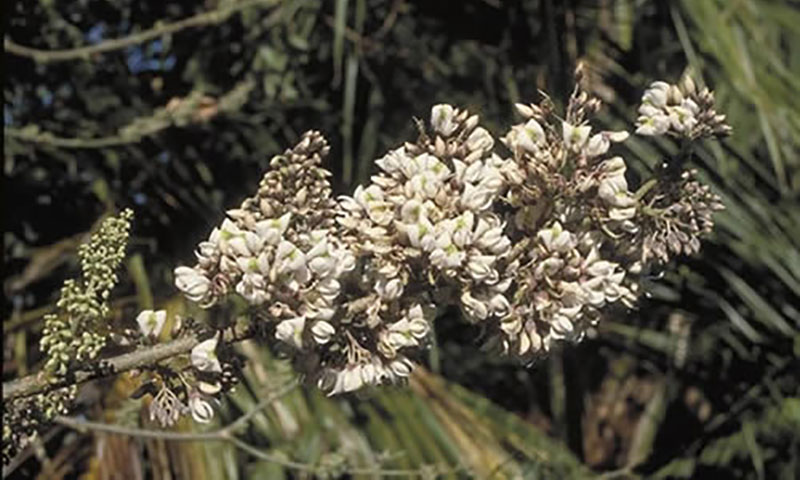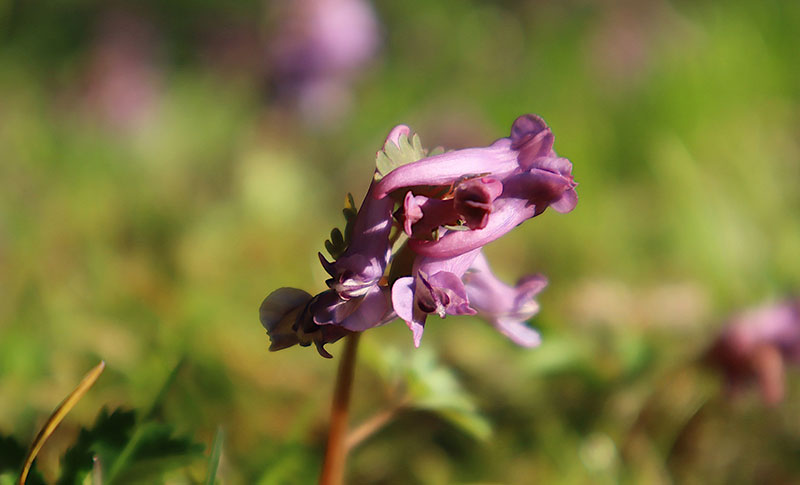Pain. We’ve all had it, and we all try to avoid it. This is considered the most common symptom worldwide. Have you ever woken up with a severe migraine – 10/10 pain – and reached for aspirin, only to find it gave you stomach ulcers and constipation? Does pain relief really need to be that complicated? No! And I’m happy to report that herbal analgesics can fill the bill – along with your medicine cabinet.
What if God (Source Energy, Creative Force, Creator, Nature, or whatever fits your Cosmology) provided in nature herbal analgesics that have pain-killing properties and virtually zero side effects? If you’ve ever wondered if you can have the gain without the pain, then these three herbs are a must for you, my friend.
Forego the Pain – Try These 3 Natural Herbal Analgesics
White Willow Bark – The “Weeping Tree”

This amazing tree comes to your rescue in nearly every inhabited country, except Australia, that is. Scientifically known as Salix alba, this tree has stood the test of time, as testified to by the thousands of years of its traditional usage, including by ancient Sumerian, Assyrian, Egyptian, Roman, Greek, and Indian civilizations. But despite all this, little human testing has been done on this pain-relieving tree. (1)
The chief substance isolated from the sap of the bark is called salicin. If this sounds familiar, you may be thinking of salicylic acid. And what does that sound like? You guessed it! The active ingredient in aspirin: acetylsalicylic acid. Scientists isolated the pain-relieving compound from white willow bark in the late 1800s! (2)
Go figure! Once in the body, the salicin content transforms (through the body’s own processes) into the appropriate amounts of salicylic acid.
Now more and more people are going to their “roots” – or rather branches – for pain relief that doesn’t come with a long list of side effects.
Salicylic acid is actually a plant hormone that bolsters the plant’s immune system. So it’s no wonder that eating plant foods helps us.
You’ve probably experienced this yourself. When you’re dealing with acute or chronic pain, your healthcare provider will typically recommend an NSAID (Non-Steroidal Anti-Inflammatory Drug) to help calm the inflammation and pain. “An aspirin a day…” as the saying goes.
Well, as it turns out, researchers have identified compounds in willow bark that block inflammation and dampen pain signals. And these compounds — salicylates, polyphenols, and flavonoids — use the same mechanisms as aspirin to soothe pain and inflammation. (3, 4, 5)
 However, unlike its synthetic counterpart, the bark of white willow does not act harshly upon the stomach or have an overpowering blood thinning effect.
However, unlike its synthetic counterpart, the bark of white willow does not act harshly upon the stomach or have an overpowering blood thinning effect.
Please Note: Those who are allergic to analgesics, like aspirin, should be cautious when using this herb.
It is significant to note also that researchers found white willow bark extract to have no detectable DNA damaging effects. (6) In fact, the leaves of the willow tree even contain the ability to combat cancer cells! (7)
Whether it’s migraine headaches, lower back pain, or even cancer inflammation, this humble tree may be the very best alternative for your aspirin cabinet – and without the side effects, too. (8)
And if you can’t find this exact type, no sweat. Fortunately, many different plants contain derivatives of salicylic acid. Herbs high in this compound include wintergreen, meadowsweet, and black cohosh, just to name a few. And if you have some cumin in your spice cabinet, that can do wonders, too. It’s 1% salicylic acid by weight! (9)
Jamaican Dogwood (Piscidia piscipula) – Fish Poison Tree

Photo by Edward F. Gilman, Professor, Environmental Horticulture Department, IFAS, University of Florida
Next on the list, an herb so potent it can even kill fish. Seriously. Joking aside, this tree’s root bark contains compounds called rotenoids that are toxic to cold-blooded animals, including fish. In fact, it’s also used as a natural insecticide; hence, its nickname “Fish Poison Tree.” Thankfully, we warm-blooded humans can breathe a sigh of relief.
Since 1844, Western researchers have uncovered the phenomenal pain soothing benefits of the Jamaican dogwood tree, which include relieving migraines, insomnia, anxiety, fear, and nervous tension. (10)
Though clinical studies are few and limited, there is sufficient evidence to show that this herb soothes anxiety and relieves high blood pressure. Specifically, in some human trials, it demonstrated sedative, anti-spasmodic, and anti-inflammatory effects – somewhere in between a Valerian root and a Passionflower. (11)
What’s more, scientific findings have shown that Jamaican Dogwood can equal or even surpass the anti-spasmodic effects of the opium-derived drug, papaverine. (12)
Unlike morphine, this tree does not seem to suppress healthy digestion and peristalsis or have an addictive component to it.
Historically, eclectic physicians used this herbal analgesic as a morphine substitute. In other words, don’t hold your breath if you are looking for a “Jamaican Dogwood Epidemic” anytime soon.
If you or someone you know has seizures, this herb may be what you need.
Jamaican Dogwood has been known to be a potent anti-convulsant, and at the same time addresses the symptomatic pain associated with muscle and facial spasms, as well as difficulty swallowing. (13)
Other ailments that it can help with are painful menstruation, sciatica pain, violent toothaches, whooping cough. You can simply prepare a decoction with 1-2 teaspoons in a cup of water and decoct for 15-20 minutes on medium heat, then sip your way to a natural pain-freeing life. (14)
However, take care when using it!
While it is not deadly to mammals, refined extracts from this herb still can be toxic. As a rule, herbs in their whole food form provide benefits, while extracts may present problems. Use with respect and under the care of a healthcare professional. Dosages specific to your body and situation are “generally well tolerated.” (15)
Chinese Poppy plant (Corydalis yanhusuo) – Asian Opium

Our next highlight comes from a species of the poppy flower primarily found in the highlands of China’s Zhejiang province. There have been over 160 isolated compounds found in the rhizome of this amazing plant. But one compound seems to stand above the rest – tetrahydropalmatine, or THP for short. Researchers found that this specific alkaloid can act as an antagonist to block dopamine receptor sites in the brain, leading to feelings of sedation. (16)
As a result, researchers further identified (in animal-based studies) that the anti-depressive effects of the Chinese Poppy plant acts upon the GABA, dopamine, and benzodiazepine receptors. (17)
Further scientific experiments of the root have confirmed that THP plays a hepatoprotective effect upon injured liver tissue, support cardiovascular health, decrease tumor cell activity, and fight bacteria and fungi. (18, 19)
But let’s get back to the pain stuff, shall we?
In a human clinical trial, Corydalis, in combination with another herb, was found effective to combat mild to moderate pain using the cold-pressor test. (20)
In 2014, researchers linked another major compound to pain relief. Dehydrocorybulbine (DHCB) blocks the sensation of pain, bringing relief from inflammation nerve pain. Hence, pain relief! This compound interacts with dopamine D2 receptors, easing sensations of pain – and all without a tolerance or dependency factor! (21)
Unfortunately, the same cannot be said of opioids which are so frequently prescribed to patients. Olivier Civelli, a professor at the University of California, Irvine, and lead author of the study concluded:
“Our study reports the discovery of a new natural product that can relieve pain… This analgesic acts in animal assays against the three types of pain that afflict humans, including acute, inflammatory, and neuropathic or chronic pain.” (22)
So which would you choose? Corydalis is up to 40% as effective as morphine without the pain of addiction or side effects. (23)
These three herbal analgesics just scratch the surface of pain relief provided to us by Nature. For example, cayenne pepper helps soothe migraines, while this simple concoction can ease constipation and aching joints.



